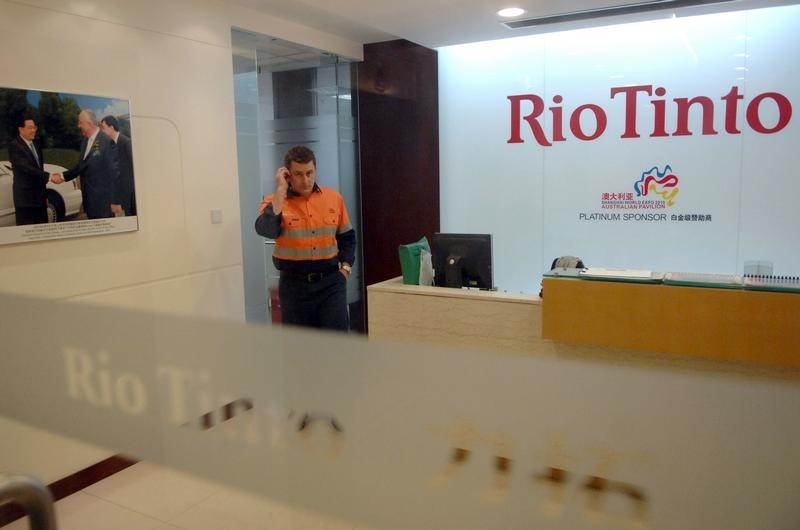* Jean-Sebastien Jacques takes over as Rio CEO on Saturday
* Replaces veteran Sam Walsh, who announced exit in March
By James Regan and Jonathan Barrett
SYDNEY, July 1 (Reuters) - After a rapid rise at Rio Tinto RIO.L , Jean-Sebastien Jacques, 44, is the youngest boss at a major mining company: the first in a generation that will need to shift from an era of cuts to one of cautious growth.
The mining industry, worth nearly $2.5 trillion at its peak in 2011, has reeled from the excesses of the boom years, when companies turned to frenzied dealmaking and building to keep up with China's insatiable appetite for raw materials.
After iron ore prices crashed, empire-building mining executives who had struck overpriced deals were dumped and replaced with cautious conservatives who sold off billions of dollars in assets and squeezed costs.
"Mining companies are just beginning to signal a change. Just cost compression, capital compression is not enough - you need to find a way to grow," said one former Rio executive.
Known to colleagues as "JS", French-born Jacques is the first executive of a major miner to have joined the upper ranks after the boom years - representing a fresh generation, Rio insiders and industry executives say, that must find a way to secure future growth while keeping an eye on costs.
"Organic growth is ok, but at some point you need to look to buy stuff, particularly if Rio is changing its focus. That's the challenge JS faces," said an investment banker in Australia who oversaw several of Rio's major deals.
Jacques, who takes the helm on July 2, has already signalled a shift with a mostly new and unknown leadership team, turning the focus away from iron ore, where Rio still generates the bulk of its profits, and to more controlled supply.
Rio's veteran chairman, Jan du Plessis, and its chief financial officer, ex-BHP Billiton BHP.AX executive Chris Lynch, are also expected to leave in the medium term, two industry sources said, in another change of guard. Rio declined to comment on those roles.
Jacques is a relative newcomer in an industry where executives serve for decades. He was hired by Rio in 2011 after stints at L'Oreal in his youth and later Tata Steel, and is best known for his skills around the negotiating table in Mongolia.
His major test now, however, will be managing Rio's $9.4 billion in cash and a portfolio of less-promising divisions, including energy coal, uranium and Canadian iron ore, which many in the market expect will be sold, eventually.
NEW CHAPTER
Jacques has certainly not shied away from cuts: $2.3 billion of assets have gone under his watch as head of the copper and coal division.
Growing will be tougher, as Rio shifts from a strategy that depended on tonnes of iron ore, at a time when Chinese growth is slower and investors, bruised by the mid-2000s, unforgiving.
"It's just a good way to say that chapter is closed and we are still mining iron ore, but we are going to look at other things," said Mike Young, former head of BC Iron, whose mine in Australia's Pilbara iron belt neighbouring Rio operations shut in December because of a global supply glut.
Growth under Jacques will not necessarily come in big bites, but rather at a staged, or "modular", pace, say analysts and industry executives, pointing to his approach in Mongolia, where Rio operates the giant Oyu Tolgoi copper mine.
Good deals will be tougher.
More than $30 billion of mining assets are up for sale, but few mining assets have flown off the shelf in recent years. Jacques has a reputation as a tenacious negotiator, most recently handling delicate talks around a $6 billion expansion at the Oyu Tolgoi mine.
Asked about Jacques, a Mongolian official recalled he once remained at the negotiating table for two straight days to secure a deal.
"He doesn't take risks in business, he mitigates risks," said an Australian mining executive who observed Jacques in Mongolia. "He's methodical."
<^^^^^^^^^^^^^^^^^^^^^^^^^^^^^^^^^^^^^^^^^^^^^^^^^^^^^^^^^^^ Rio, shifting focus, replaces veteran Walsh with copper boss
